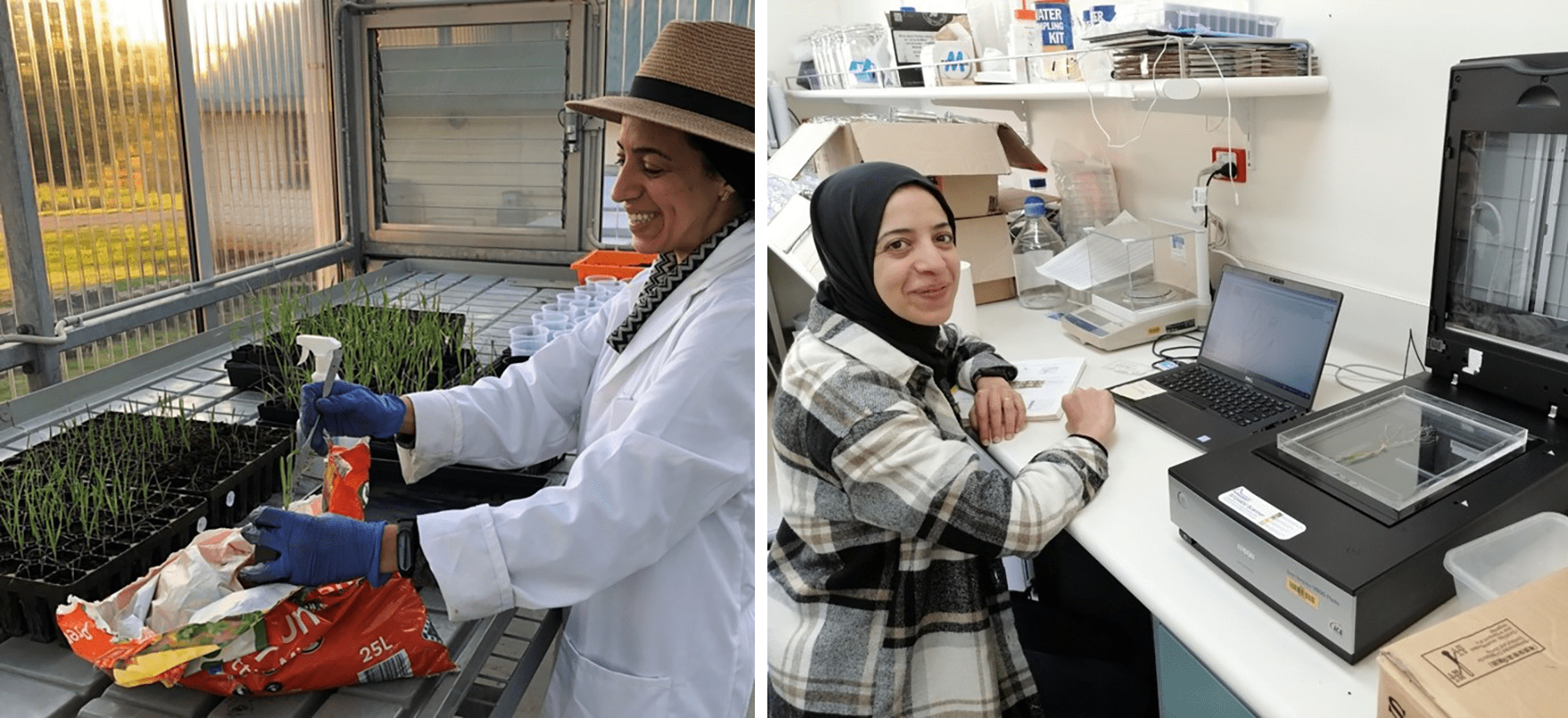

Tunisian intern studies soil microbes in Australia
February 15, 2023

The Crawford Fund’s New South Wales Committee supported Ms Altaf Hamila, a Tunisian student at the University of Izmir, Turkey, to undertake an internship with the NSW Department of Primary Industries, Wollongbar Agriculture Institute and Southern Cross University, Lismore to study soil-borne fungal and other diseases of various crops.
Altaf’s training took place as part of the Soil CRC project “Soil microbial indicators: what do they mean and how can they be used?” led by Dr Mick Rose, NSW DPI. The internship provided training in the glasshouse and lab within the framework of developing techniques for assessing disease suppressiveness to soil-borne diseases of wheat. We were very pleased to have contributions from Jay and Altaf for our Instagram campaign and highlighted in the Australasian Plant Pathology Association newsletter!
According to Dr Jay Anderson, plant pathologist and lecturer at Southern Cross University, who coordinated the internship opportunity, Altaf improved her skills in plant and glasshouse techniques, trouble-shooting plant assays, observation, data recording, analysis and reporting.
The three-month internship, allowed Altaf to:
- build skills and confidence in designing and running glasshouse experiments and basic plant pathology including learning about appropriate experimental controls, ensuring appropriate resources are available, growing plants in a glasshouse, culturing of fungi, isolation of fungi from diseased tissue, preparation of media, modification of experimental techniques, and collation and analysis of data.
- learn about different indicators of microbial indicators of soil health and test some plate-based techniques in the laboratory.
- learn molecular techniques to assess soil health including qPCR and setting up qPCR reactions being done as part of the broader project.
- gain experience collaborating with Australian researchers including plant breeders (tea tree and rice), agronomists, soil scientists, plant pathologists and technicians through laboratory work and field trips.
- gain exposure to cropping in Northern NSW in particular wheat, tea tree, rice, coffee and banana.
“In the future, I am planning to continue working in plant pathology to learn more skills about the plant diseases, particularly the soil borne diseases,” said Altaf.
“As I am working on Lavender essential oil now for my master thesis, I am planning to use the skills I learned during my training in Australia to detect the antifungal activities of Essential Oil of Lavandula Angustifolia using the same method of soil granules in the plate, replacing it by oil drops and studying the effect against some pathogens,” she said.
“In the longer-term, the project has contributed to the development of a female scientist, with Altaf now keen to undertake PhD study in Australia and she is applying for PhD scholarship opportunities,” said Jay.
“The internship built on the foundations for cooperation with Tunisian institutions and researchers laid by Prof Lester Burgess and colleagues in SARDI through the Crawford Fund Master Class on Soil-borne Pathogens of Wheat, and the 1st North African Workshop on Fusarium, both of which involved support from the NSW Committee,” said Jay.
While a separate project, the NSW Crawford Fund Committee also supported a workshop on “Taxonomy, Biology and Integrated Management of Rhizoctonia” which was held during Altaf’s visit.
“I gained valuable experience in training an international intern, including the administrative aspects such as supporting visa applications, and the training aspects of needs of students from non-English speaking backgrounds,” concluded Jay.




